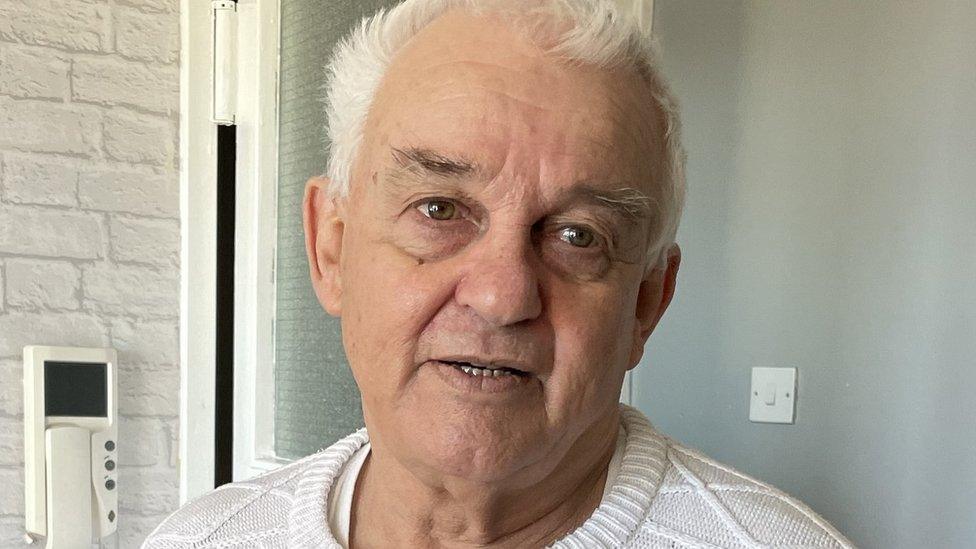Lives could be lost over link worker cuts, say GPs
- Published
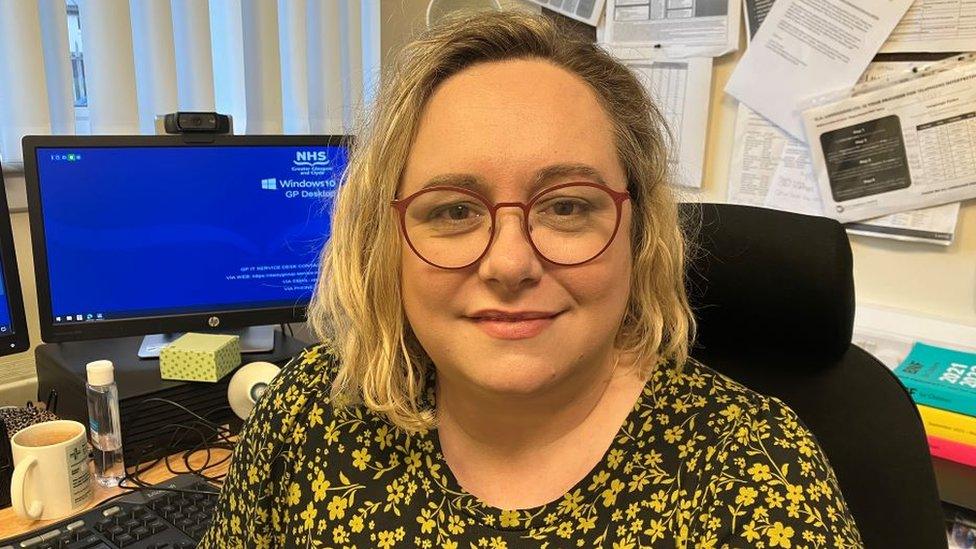
Dr Victoria Shotton warns the cuts "could result in lives being lost"
Doctors in some of Glasgow's poorest communities are warning they will not be able to do their jobs if planned cuts to link workers go ahead.
Community Link Workers offer one-to-one support for issues such as debt, housing, domestic violence and loneliness, freeing up GPs to concentrate on medical conditions.
However, budget cuts mean numbers could be reduced by a third next year.
Dr Victoria Shotton warned the cuts "could result in lives being lost".
The GP, who works in Drumchapel, Glasgow, said she would be "furious" if the cuts went ahead.
"It's the single most beneficial service that has been brought into general practice in the past decade at least," she told BBC Scotland News.
The link workers are often based in Deep End GP practices, which are located in areas of the highest deprivation.
Dr Shotton, believes the cuts could be the biggest thing that would make fellow Deep End GPs leave the profession sooner than they had planned.
"General practice is really difficult at the best of times, but link workers have made such a difference in volume management," she said.
"For areas such as Drumchapel, where health inequalities and poverty are high, and all the situations that come with that, we wouldn't be able to do our jobs without them."
Glasgow's Health and Social Care Partnership (HSCP) - which employs the CLWs - said it was struggling with "very significant financial challenges" and was looking to reduce the number of link workers from 64 to 42.
Earlier this year, the HSCP announced budget cuts of nearly £22m amid pressures on public service budgets.
The Scottish government has offered to fund half the gap that is needed to prevent the cuts to link workers.
But Glasgow's HSCP told BBC Scotland News the offer would involve it matching the funding which would require it to "divert additional funding from other overstretched services".


The title is a big clue to the job. A link worker is the connection between social issues such as debt, unemployment, isolation and physical symptoms such as anxiety and depression.
Doctors don't have time, nor are they trained, to help people who live in fear of bailiffs or violent partners - or are choosing whether to eat or keep the lights on each day.
It is in that space that the link worker is seen as essential to GPs who work with the most vulnerable patients.
There are also people who may be ignoring medical symptoms because they don't want to miss a shift at work for a hospital appointment.
Watching it in action in Drumchapel, you can see just how well it works to have the link worker a couple of doors away from the doctor.
It allows opportunistic conversations about patients who are there for either a medical or social consultation.
But in a financial environment where the health and social care partnership needs to provide safe shelter for those fleeing violence or to protect vulnerable children, you can see why cutting back on preventative services might feel like the only option amid budget cuts of £22m earlier this year.
Others will argue that all this does is create worse problems down the line as more patients turn up at A&E in a mental health crisis or need more time with their GP.

'I wouldn't have got the help elsewhere'
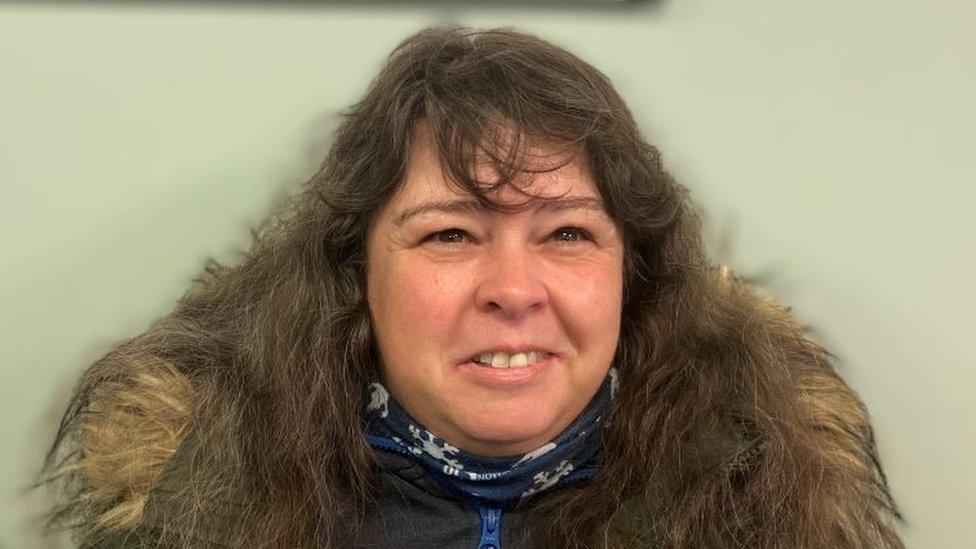
Audra says the support offered by her link worker has been "phenomenal"
One of the patients helped by link workers at Dr Shotton's practice is 53-year-old Audra.
She believes she "wouldn't have got the help elsewhere".
Audra needed help with disability benefits and her mental health and described the support offered by the link worker as "phenomenal".
"I was crying a lot, I wasn't really wanting to go out and about, whereas now I've got more of a positive outlook and I look forward to going out and meeting people again," she told BBC Scotland News.
"I'm not having as many headaches or shoulder pains and I'm looking forward to doing things I didn't before."
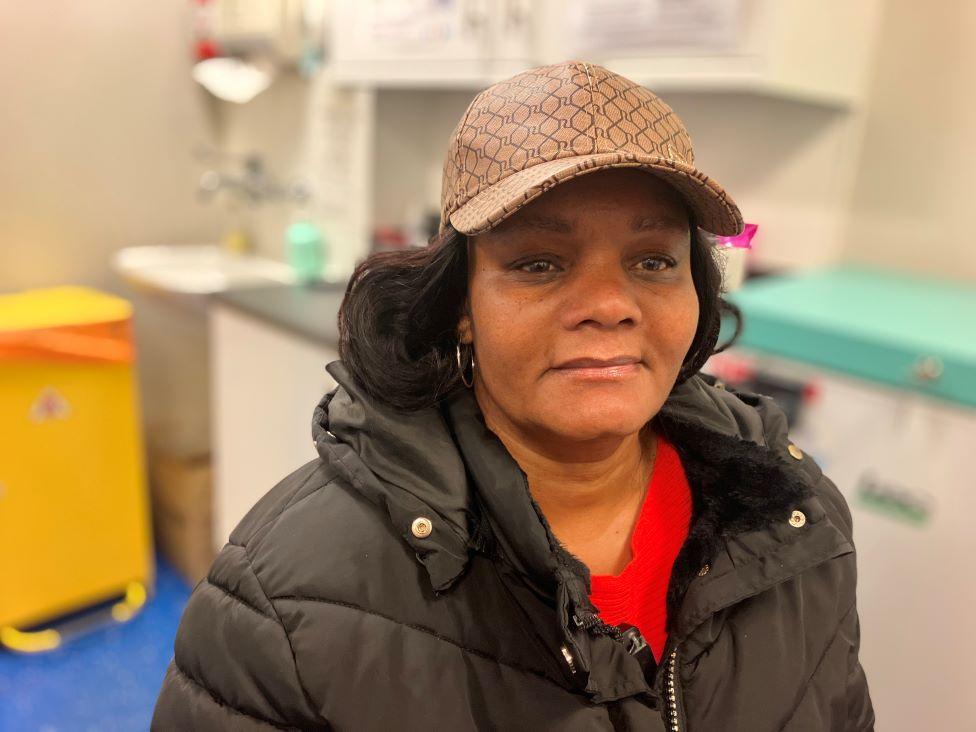
Leonardine says she has noticed a "huge difference" in both her physical and mental health
Another woman who was referred to a link worker was asylum seeker Leonardine from Namibia.
The 45-year-old did not even know where she could buy food when she first arrived in Glasgow 11 months ago.
"When I arrived I was distraught, I didn't know anything," Leonardine told the BBC.
"When you arrive in a country and you know nobody, you don't know where to go.
"It was an emergency, I really needed help as soon as possible."
However, she said that since being directed to her local link worker, she noticed a "huge difference" in both her physical and mental health and "feels at home" in Drumchapel.
She now attends a women's group, a gardening group and a walking club.
"She [link worker] introduces me to people with the same heart as hers," Leonardine said.
With health inequalities worsening in the last decade, GPs say services like these should be expanding, not reducing, and that any cuts will only further fuel demand on an already stretched health service.
The Alliance, a third sector intermediary that employs the majority of the roles at risk on behalf of the HSCP, told BBC Scotland News that should the cuts go ahead it would have to begin the staff consultation process for redundancies.
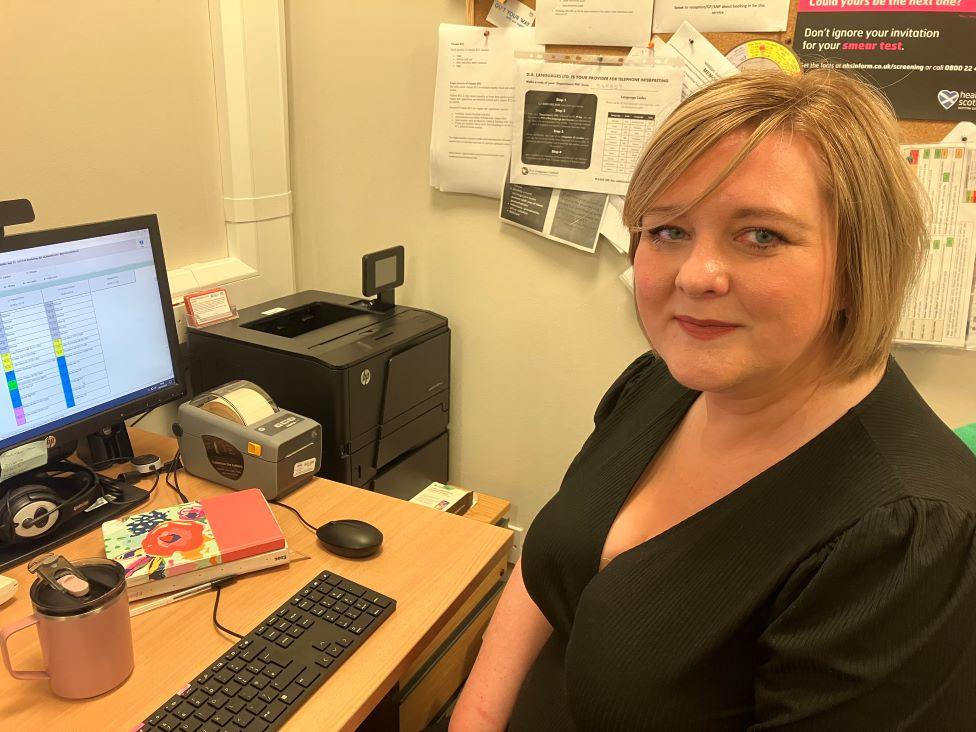
Lisa Fox describes her job as "a real privilege"
Lisa Fox, the link worker who helped both Leonardine and Audra, describes her job as "a real privilege".
She believes any reduction in the number of CLWs would be "devastating" for communities such as Drumchapel.
"There will be people in really desperate situations sometimes and I can't always fix the problem, but I can come up with a solution," she said.
"If we are not immediately available, that support can't happen, for example that immediacy of someone needing support from a food bank and that referral.
"That can't always wait, so having a waiting time for appointments isn't always reasonable."
She added that link workers were able to draw on a wide breadth of experience and knowledge from each other, and that any loss to the workforce would have a "serious impact".
'Serious financial challenges'
GMB Scotland, which represents CLWs in Glasgow and has campaigned for the roles to be protected, said workers were facing redundancy before Christmas and warned long-term funding for the roles must be agreed urgently.
Rory Steel, GMB Scotland policy and external affairs officer, told BBC Scotland: "They are working on the frontline in some of our poorest neighbourhoods and deserve every possible support instead of this continuing uncertainty.
"If those in control of the funding are serious about minimising the impact of poverty then they must show an urgency and commitment to underpin these roles in the long-term."
A spokeswoman for Glasgow's Health and Social Care Partnership said: "We invest £2m in community links workers and £20m in other support services in primary care as part of our Primary Care Implementation Plan.
"CLWs are a valued element of our support for primary care in the city, but we do have finite resources available to us and we must work with the money we have available.
"We received a formal offer from the Scottish government regarding additional funding for CLW which we responded to.
"We are keen to continue discussions with Scottish government but their offer of funding being contingent on us diverting additional money from other overstretched services is not something we can comply with given the very serious financial challenges we are facing across all our business."
A Scottish government spokesperson said: "We have allocated £1.35m to the Health and Social Care Partnership (HSCP) to secure Community Link Worker posts this year. This is on top of £23m Primary Care Investment Fund (PCIF) funding.
"For the next financial year, we have offered the HSCP £600,000 of recurring match funding - on top of the expected PCIF funding for 2024/25 to secure the post under threat.
"It is for the HSCP to decide how it will take forward any decision on community link workers but we remain committed to working with them to come to a solution."
Related topics
- Published19 August 2023
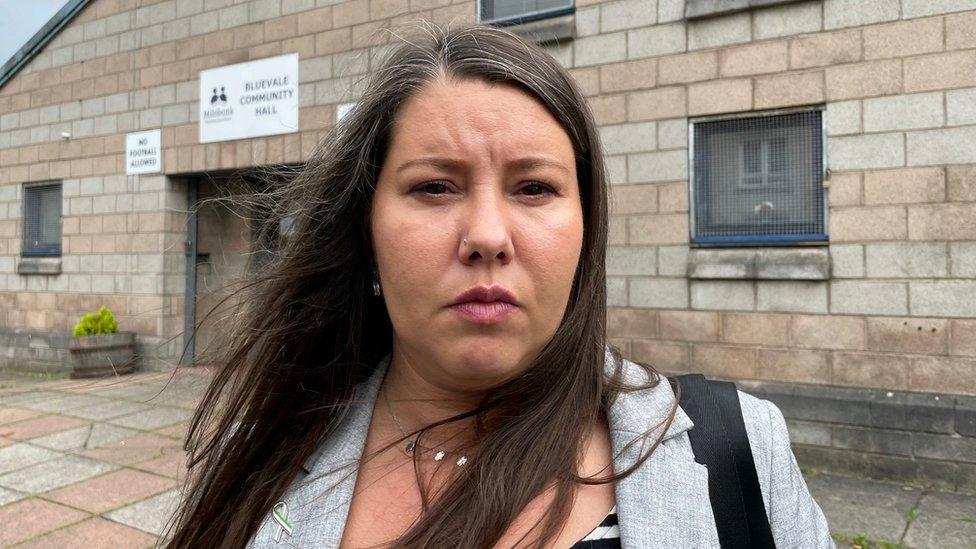
- Published22 March 2023
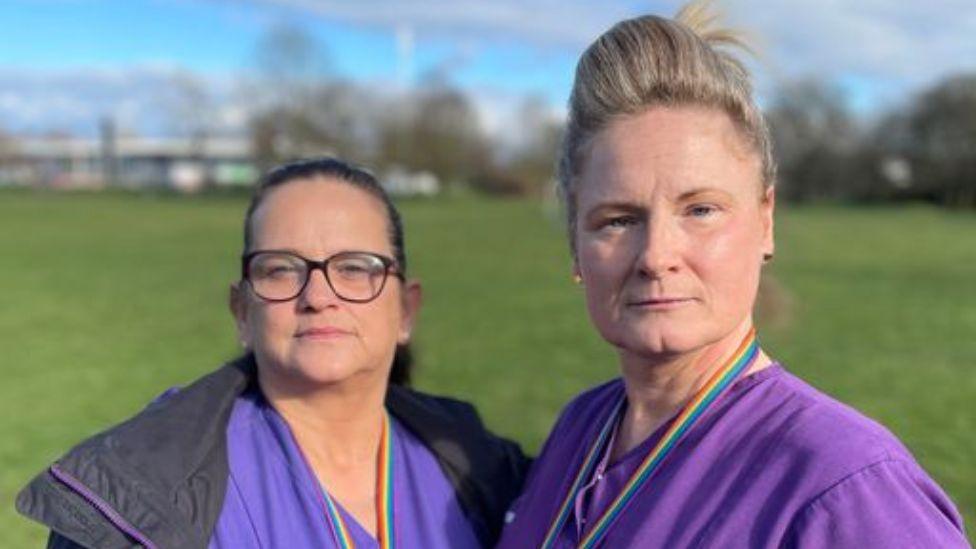
- Published25 February 2022
